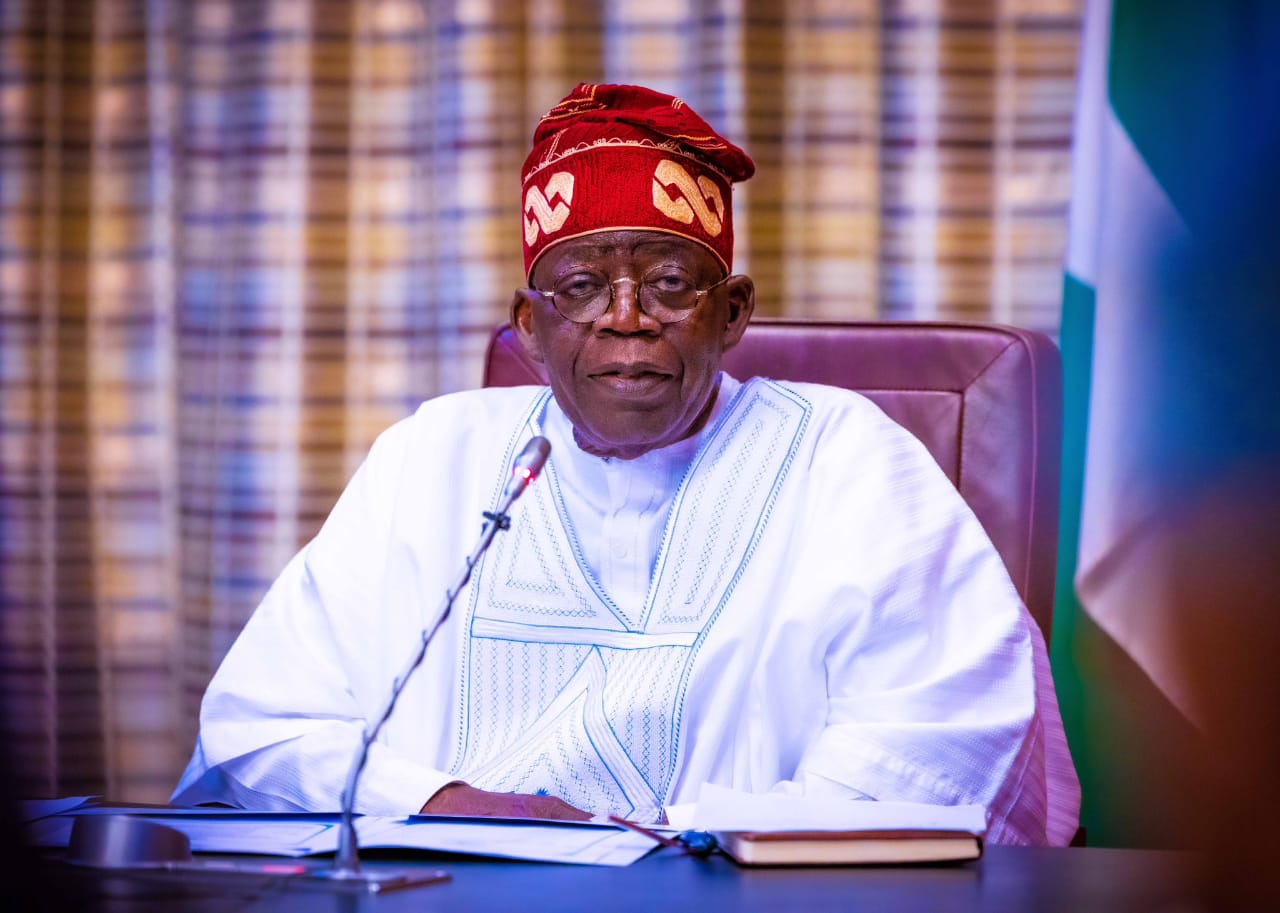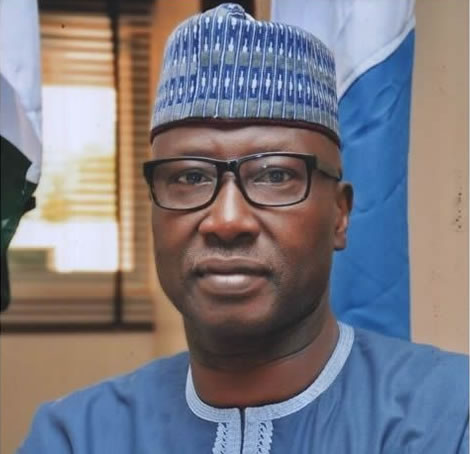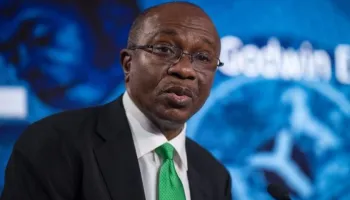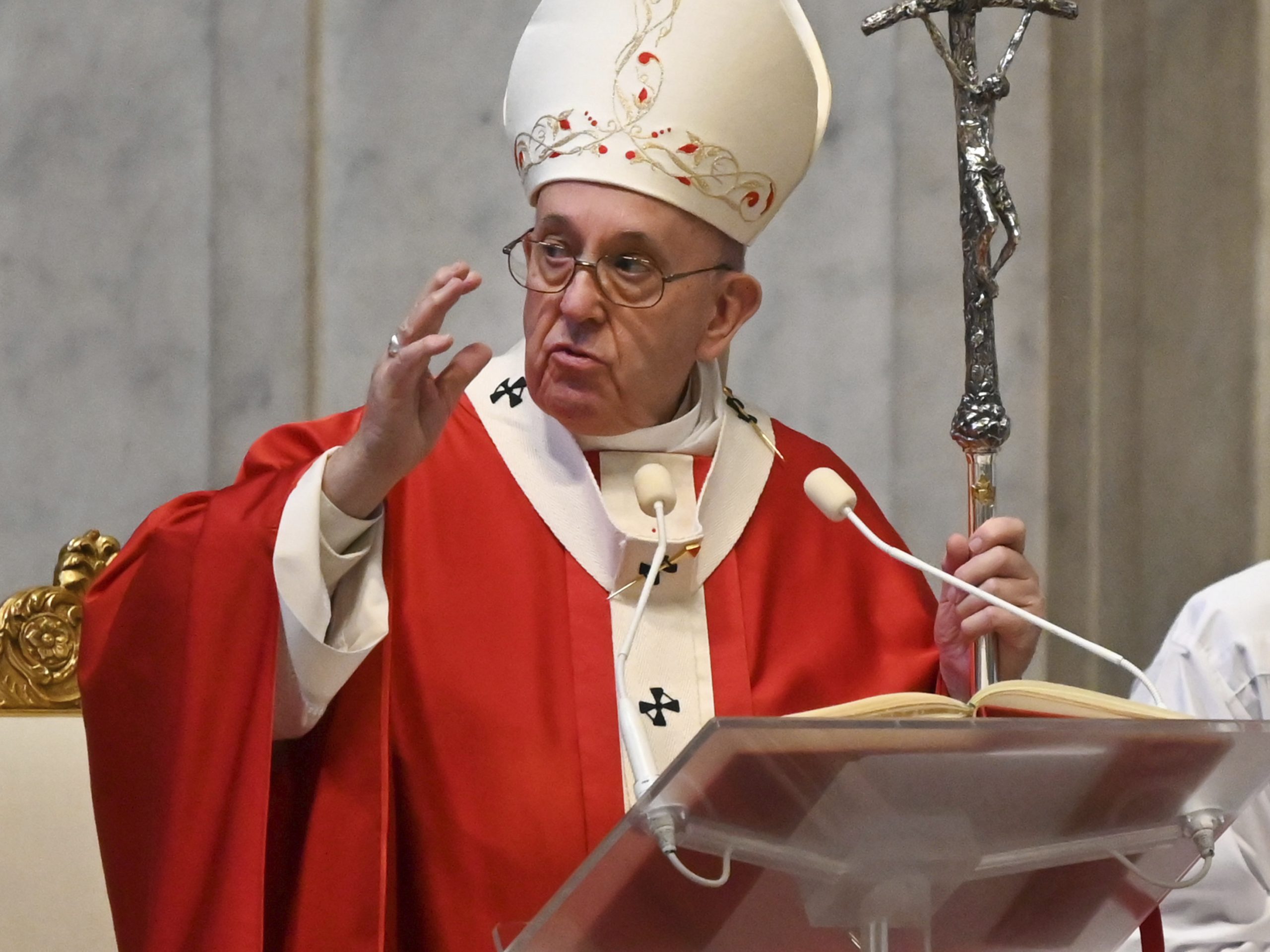COVER
A UK-Africa Trade Deal Would Create Jobs and Boost the Commonwealth – Post-Brexit, It’s Now Possible

By Muhammadu Buhari
A deal would enable Britain to practice the free trade it has long preached and represent recognition by a G7 economy of the benefits of African unity, writes President Muhammadu Buhari of Nigeria.
Two years after the United Kingdom’s departure from the European Union, my country Nigeria and her African partners seek a new settlement with Britain: one based on cooperation in fairer – and freer – trade.
The UK and Nigeria share a deep and special partnership.
We are champions for peace and security in Africa. We are custodians of the Commonwealth. Yet in recent years our relationship, particularly on trade, has been defined by Britain’s membership of the European Union.It meant being part of attempts to cajole individual African nations into lopsided European bilateral economic partnership agreements. Nigeria rejected such a deal in 2018, as it sought only to prioritise beneficial terms for raw commodities export to Europe while erecting high tariff barriers to goods manufactured and processed in Africa – stunting job creation. Lack of employment is a key cause of mass migration from Africa to Europe, perversely caused by the very trade policies intended for Europe’s protection.
Now, all this can be changed. Last September, history was made with the UK becoming the first country in the world to sign a memorandum with the African Union’s 54-country Continental Free Trade Area (AfCFTA). This should lead to a UK-African union free trade deal. It would be one made with parity, considering Africa’s $3tn combined GDP is equivalent to that of the United Kingdom, the world’s fifth-largest economy.
Given that the Commonwealth’s 19 African members collectively produce over half the African continent’s GDP, a UK-Africa deal would, concurrently, cause a revitalisation of intra-Commonwealth trade and with it the club itself – a stated British foreign policy aim. This could be further enhanced should we take advantage of the fact those 19 nations’ national laws are built on the principles of English jurisprudence: a common platform from which to better align regulations on investment and certification.
A deal would enable Britain to practice the free trade it has long preached. It would represent recognition by a G7 economy of the benefits of African unity; that job creation and manufacturing in Africa can be an advantage and not a threat to the western world. And it would inject momentum into a renewed Commonwealth, after decades during which the organisation’s potential for economic cooperation was in abeyance while its most influential founding member was bound to European trade policies and unable to act alone. A Commonwealth rebuilt around trade would help replenish this underused club of friends.
But before we reach ahead of ourselves, we must remember that though the purpose of trade deals should be mutual prosperity, favorable terms can be rejected because little attention has been made to persuade public opinion. On both sides, there will be those concerned over competition and terms of trade.
To carry our citizens with us we must start by agreeing on the most favorable trading terms for those products each other does not produce. Fresh and processed foodstuffs, for instance, which cannot be grown in the UK should be prioritised with favorable or no tariffs.
For British companies seeking opportunities in Africa, there should be incentives for sectors heavy in job creation. Here there are millions of highly-skilled, English-speaking but underemployed young people. They are eager to work but without the opportunities that foreign investment can bring to create jobs and build businesses.
This great market is Britain’s opportunity. But, of course, some see it as a threat to where jobs can only be lost and from where immigrants come. They view engagement as a partially open door that will only become wider – unless borders become walls, and Britain a fortress.
That is a mistake. Those who rail against “economic migrants” must realise few people anywhere wish to leave their communities to live in foreign lands. Most would rather stay at home. But the way to help them stay there is not by force, or walls, or racism: it is investment and jobs where they live.
And those jobs will be needed to produce the goods and services demanded by Africa’s growing middle class, whose number is predicted to be close to one billion by 2050. They will not be cheaper replacements for employment lost in Britain or elsewhere: rather extra jobs, created by expanding opportunities in a growing African economy.
Those who come from Britain seeking opportunities will be welcomed by an expanding and worldly-wise middle class wishing to experience the best of British culture, products, and expertise – from television and creative industries to iconic cars and education services.
Being the first mover amongst the G7 to seek a trade deal with Africa, the UK is positioning itself to secure the very best of terms and stands able to revive intra-Commonwealth trade, replenish its relations with the fastest growing market in the world, tackle the causes of economic migration – and create jobs and wealth that boost rather than threaten those at home.
Muhammadu Buhari is President of the Federal Republic of Nigeria
COVER
May 29th Tragedy: Flash flood kills 21and wash away 50 houses in two Niger Communities

From Dan Amasingha, Minna
Tragedy struck in two Niger Communities as flash accompanied by heavy down pour that lasted for hours led to heavy flood that claimed 21 lives and washed away over 50 houses. The heavy down pour which started late on Wednesday, the 28th of May lasted till mid Thursday leaving behind tells of woes and deaths.
Niger State emergency management agency confirmed the deadly flood in a statement by the Director General Abdullahi Baba Ara on Thursday evening. ” NSEMA is in receipt of report of a deadly flood disaster that ravaged two communities of Tiffin maza and Anguwan hausawa in Mokwa town of Mokwa LGA” He disclosed that, the incidence occurred last night (Wednesday)during a torrential downpour of very high intensity that lasted several hours.According to him, the surging flood water submerged and washed away over 50 residential houses with their occupants.Tge Agency Director General disclosed that, ” in response the Agency, in collaboration with Mokwa LG Authority, local divers and very brave volunteers are conducting search and rescue operation to rescue survivors and recover corpses .” At present 3 servivors ( a woman and her 2 children) are receiving treatment for wounds and shock at Mokwa general, while 21 corpses have so far been recovered of those who sadly loss their lives in the incidence” Alhaji Abdullahi Baba Ara said over 10 persons are still missing as search and rescue operation is still ongoing.COVER
My Administration, Policies Are Working, Says Tinubu

By Andrew Oota , Abuja
President Bola Tinubu has declared that his administration’s economic reforms and policies were working for the progress of Nigeria and the good of all.
The President also stated that his administration would make life better for Nigerians acknowledging the sacrifices made so far, with a conviction that his vision for the country is clear.
Tinubu said this in a statement issued to commemorate the second anniversary of his administration on Thursday, May 29, 2025.
He stated that his administration had stabilised the nation’s economy, noting that “we are now better positioned for growth and prepared to withstand global shocks.
”He pointed out that , “Today, I proudly affirm that our economic reforms are working. We are on course to build a greater, more economically stable nation.
“Under our Renewed Hope Agenda, our administration pledged to tackle economic instability, improve security nationwide, reduce corruption, reform governance, and lift our people out of poverty.
“While implementing the reforms necessary to strengthen our economy and deliver shared prosperity, we have remained honest by acknowledging some of the difficulties experienced by our compatriots and families.
”We do not take your patience for granted. I must restate that the only alternative to the reforms our administration initiated was a fiscal crisis that would have bred runaway inflation, external debt default, crippling fuel shortages, a plunging naira, and an economy in a free-fall.
“Despite the bump in the cost of living, we have made undeniable progress.”
The president further stated that he acknowledged the sacrifices many Nigerians have been making for the development of the country, adding: “Our journey is not over, but our direction is clear. So is our resolve to tackle emerging challenges.
“By the Grace of God, we are confident that the worst is behind us. The real impact of our governance objectives is beginning to take hold.
“The future is bright, and together, we will build a stronger, more inclusive Nigeria that we can all be proud of.” He said.
COVER
Seven Months After, Reps Pass Harmonized Tax Reform Bills

By Eze Okechukwu and Ubong Ukpong,Abuja
House of Representatives on Wednesday passed the tax reform bills transmitted to the National Assembly by President Bola Tinubu in October 2024.The bills were passed at a session presided over by the Deputy Speaker, Benjamin Kalu.
The development followed the adoption of the harmonised versions of the reform bills by both the House and the Senate. At plenary on Wednesday, the House of Representatives considered the report of the conference committee, which harmonised the bills. The Chairman of the House Committee on Finance, Abiodun Faleke (APC, Lagos), who headed the House team to the conference committee, presented the conference report to the House for consideration.According to him, the Conference Committee met and agreed on all areas of difference in the version passed by both chambers of the National Assembly. He stated that there were 45 areas of difference in the Nigeria Tax Administration Bill, 12 areas of difference in the Nigeria Revenue Service Bill, 9 areas of difference in the Joint Revenue Board Bill and 46 areas of difference in the Nigeria Tax Bill, adding that all grey areas were resolved ahead of the passage. While the conference committee agreed to retain the Senate version in some of the clauses, they also retained the House version in some others, making amendments in a few others. The conference committee agreed to the imposition of a 4 per cent development levy on the assessable profit of all companies chargeable to tax under Chapters 2 and 3, except small companies and non-resident companies. They also agreed that the levy shall be collected by the Nigeria Revenue Service and paid into a special account created for the same purpose.In the sharing formula, the committee agreed that 50 per cent of the tax would go to the Tertiary Education Trust Fund, 15 per cent to the Education Loan Fund (up from 3 per cent agreed by the House), and 8 per cent to the Nigeria Information Technology Development Fund.
Similarly, the National Agency for Science and Engineering Infrastructure is to get 8 per cent (down from 10 per cent earlier agreed by both chambers), the National Board for Technology Incubation is to get 4 per cent from the fund, defence and security infrastructure is to get 10 per cent while cyber security fund will get 5 per cent.
Meanwhile, the Social Security Fund, Nigeria Police Trust Fund, and National Sports Development Fund were excluded from the list of beneficiaries passed by the House of Representatives.
The committee also adopted a new clause 158, which imposes a 5 per cent surcharge on chargeable fossil fuel products provided or produced in Nigeria and shall be collected at the time a chargeable transaction occurs.
The controversial Value Added Tax sharing formula was not part of the areas of disagreement between the two legislative chambers.
In his remarks, Kalu said the parliament has played its part in ensuring that the country moves forward, even as he urged the executive arm of government to do its part.
In his contribution, a member of the House representing Gwoza/Damboa/Chibok Federal Constituency, Borno State, Ahmed Jaha warned those who will clean up the bill not to tamper with any of the clauses passed, saying “Where the T is not crossed, don’t cross it, where the I is not dotted, don’t do it. We have the original copies of the bills as passed before and after harmonisation.
“We have had cases in the past where those in charge of cleaning up the bills tamper with it and at the end of the day, the President will withhold assent. That must not happen.”
That said, the All Progressives Congress lawmaker singled out Speaker Tajudeen Abbas and Deputy Speaker, Benjamin Kalu for praise, saying, “I want to thank your leadership for the role you played in making these bills a success. I also want to thank the Chairman of the Committee, Abiodun Faleke. He showed that he is truly a good elder. He provided a lot of training for some of us, and I want to say that this is the way to go.”
In a related development, the Senate has approved the Rivers State 2025 budget for a second reading.
The budget, which totals ₦1,480,662,592,442 trillion, was presented by the Senate Leader, Senator Michael Opeyemi Bamidele, on Wednesday.
Bamidele explained that the Senate had assumed legislative powers over Rivers State following the declaration of a State of Emergency in the state.
Supporting the motion, Senator Solomon Adeola Olamilekan emphasised the urgency of passing the budget to ensure that the people of Rivers State feel the impact of governance.
He said, “Mr. President, I am not exactly sure under what title this document is categorised, but from what I can see, it pertains to a budget under the state of emergency. I hereby support its passage for second reading so that the people of Rivers can feel the presence of government.”
With no opposition to the motion, the Senate President, Godswill Akpabio, conducted a voice vote and referred the budget to the Ad-hoc Committee on Overseeing the Rivers State of Emergency for further legislative action.
Senate announced that the Sole Administrator of Rivers State, Vice Admiral Ibok-Ete Ekwe Ibas, along with other key state officials, would appear before a Joint National Assembly Ad-hoc Committee to defend the state’s 2025 budget. NASS holds commemorate 25 years of democracy, holds joint session,
Also,President of the Senate, Senator Godswill Akpabio, has announced that a joint session of the National Assembly will be held on June 12 to commemorate Democracy Day.
He made the announcement after the upper chamber reconvened for plenary on Wednesday.
Akpabio revealed that the Senate leader, Senator Opeyemi Bamidele, the Senate minority leader, Senator Abba Moro as well as the Chairman senate services, Senator Sunday Karimi will meet with their counterparts in the House of Representatives to finalize the programme of activities and coordinate arrangements for the special session.























